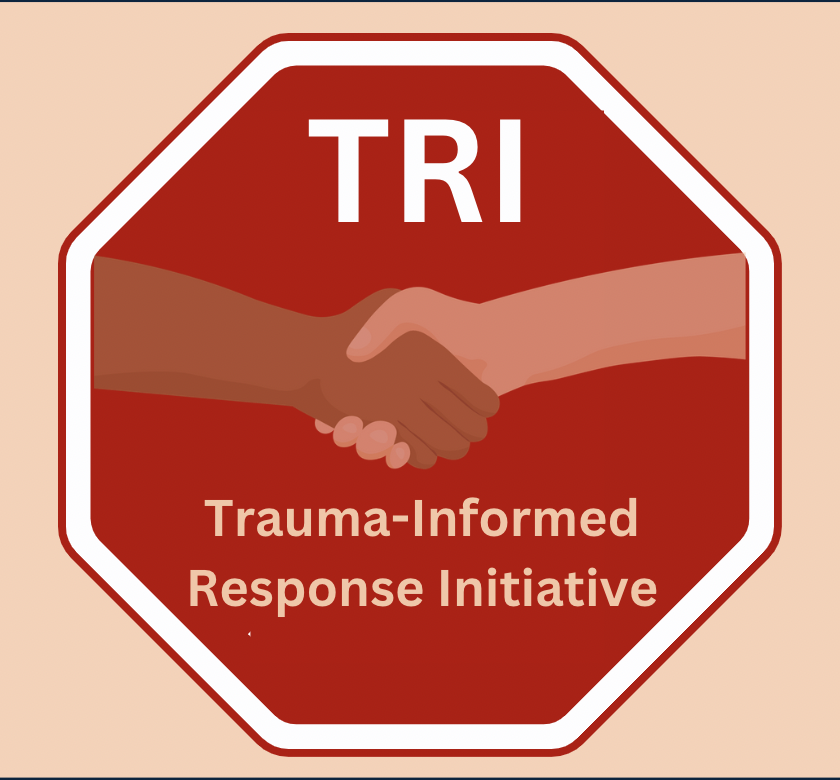
The Trauma-Informed Response Initiative
(TRI – pronounced “try”)
The Trauma-Informed Response Initiative (TRI) provides resources to be supportive, inclusive, and bias-resistant while responding to challenging behaviors and maintaining consistent, effective boundaries for a positive environment for all.
TRI helps people stop before writing another person off, and instead try to have trauma-informed, procedurally-fair practices for setting boundaries for challenging behaviors in consistent, empowering, and accessible ways.
Some TRI projects and resources include:
- “Bullying” Breakdown Template – We co-presented a workshop for the Association for Conflict Resolution (ACR) on March 25th, 2025 at 1PM ET. This workshop publicly shared a template we are using to help people unpack the challenging behaviors that emerge in “bullying” situations to get specific about addressing all the resulting issues in holistic ways. Access the template by clicking here. To get involved in this project, e-mail tri@mhsafe.org
- Accessible Opposition Kits (A OK) – It can be hard, in conflicts, to seek disability accommodations from opposing parties and opposing counsel who may believe their job is to gain leverage over you by causing distress. Accessible Opposition Kits aim to encourage civil and supportive dynamics amidst these complicated disputes. Learn more about them by clicking here.
- Setting Boundaries (Without Writing Anyone Off) – This series of four videos provides a quick overview of ways to address four challenging behaviors including [1] monopolizing time, [2] inappropriate comments, [3] off-limits topics, and [4] bullying (targeting). It was presented as part of the 2024 ACR conference. You can watch a replay at www.mhsafe.org/acr with the password: “Boundaries”
- Authority Biases and Abuses Toolkit – Sometimes people in positions of authority may misuse it in ways that lead to responses that are not trauma-informed. This project is a work-in progress and if you are interested in helping, contact us at tri@mhsafe.org. We are collecting resources to help people who face [1] Communication Barriers (no response, incomplete response, delayed response, being silenced, or being shunned), [2] Disability Insensitivities (rejecting requests, disparaging with stereotypes, dismissing disability needs, mishandling disability information, or providing a backlash to someone’s known or perceived disability), and [3] Violations of Processes and Protocols (creating ad hoc discretionary policies and practices, applying organization processes inconsistently, not removing biased actors, lying in formal documents, or concealing peoples’ identities and otherwise avoiding accountability).
- Demystifying Distress – This 2024 event co-sponsored by MH Safe, Mediate.com, ACR, APFM, NAFCM, and CPR shares resources to help practitioners be prepared for distress, practice self-care, and set boundaries without writing anyone off. Visit https://mediate.com/demystifying-distress/ to access these free resources.
- BiasResistantCourts.org – Created by the CUNY Dispute Resolution Center and MH Mediate, and funded by the AAA-ICDR Foundation, this website presents 12 resources that can be used by courts (or anyone) to become trauma-informed and bias-resistant. Visit www.biasresistantcourts.org to access these resources.